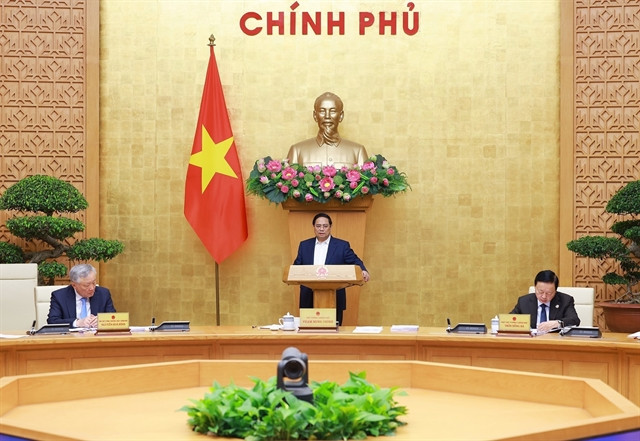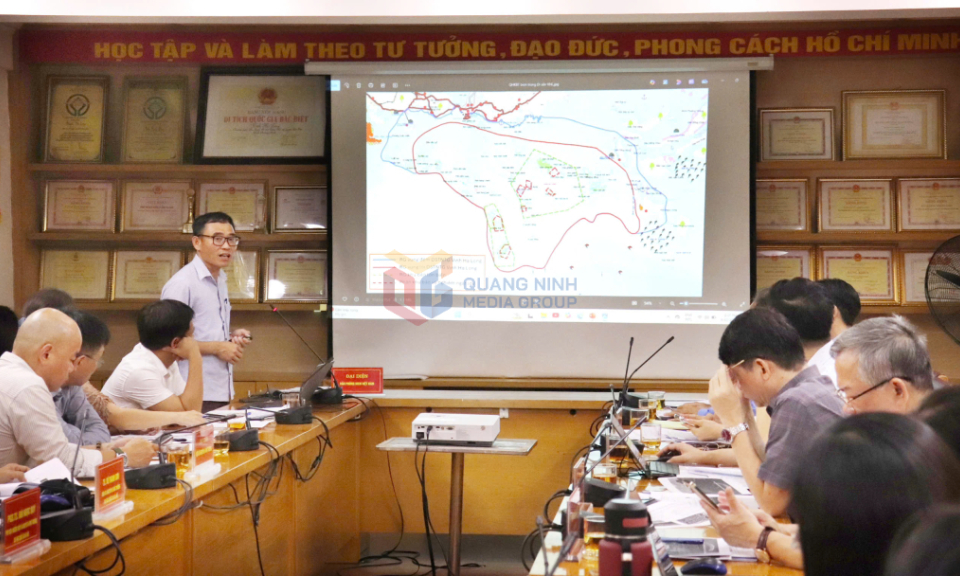Việt Nam sustains positive socio-economic performance thus far: PM
The country continues to record positive socio-economic results, with a stable macroeconomy, controlled inflation and key economic balances in place.
Despite headwinds in May and over the first five months of 2025, Việt Nam managed to maintain its socio-economic development momentum, Prime Minister Phạm Minh Chính confirmed while chairing a regular Government meeting in Hà Nội on Wednesday.
PM Chính noted that the world experienced complicated and unpredictable changes in May, including trade tensions, armed conflicts and non-traditional security threats, all of which impacted the global economy, especially major markets and supply chains.
Domestically, Việt Nam focused on restructuring the political system’s organisational apparatus, establishing the two-level local administration model and rolling out drastic measures to secure at least 8 per cent growth for this year and respond to the new US tariff policy.
The country also implemented the Politburo's four key resolutions, prepared for the National Assembly’s ninth session and organised celebrations of major anniversaries, he said.
In this context, Việt Nam continues to record positive socio-economic results, with a stable macro-economy, controlled inflation and key economic balances in place.
On June 2, electricity consumption reached an all-time high, while the supply was still guaranteed. Budget overspending and public debt were kept under control, growth was bolstered and the agriculture, industry and services sectors all showed positive development, the PM said.
Attention has been given to cultural and social affairs as well, along with ensuring social security. The National Assembly and Government have passed resolutions on building social housing to address housing difficulties for disadvantaged families, while the programme to eliminate temporary and dilapidated housing is nearing completion.
People's material and spiritual lives have also improved; political and social stability were maintained; national defence, security and social order were strengthened; diplomacy has been intensified; and issues with long-stalled projects involving around US$240 billion and over 200,000 hectares of land are being actively resolved, he noted.
However, the PM also highlighted ongoing challenges, including heavy macro-economic management pressure, difficulties facing production and business activities, a slow real estate market, complex gold market issues, problems with smuggling and counterfeit goods, and food safety concerns.
At the meeting, the Ministry of Finance reported that socio-economic conditions in May and the first five months of the year continued to improve, outperforming previous months and the same period last year.
Macro-economic stability remained solid and inflation was controlled. The consumer price index (CPI) increased 3.21 per cent over five months year-on-year. The monetary market was basically stable, and lending interest rates continued to fall, especially short-term rates.
State budget revenue reached nearly 58 per cent of this year's target, up 24.5 per cent year-on-year while budget spending rose 27.7 per cent, with strict savings on regular expenditures to meet economic and social development, defence, security, debt repayments and policy commitments.
Trade figures surged in May compared to last year, with exports up 14 per cent and a trade surplus estimated at $4.67 billion. Public investment disbursement accelerated significantly, reaching an estimated VNĐ199.3 trillion ($7.64 billion), equivalent to 24.1 per cent of the PM’s plan. This figure is 2.5 per cent, or VNĐ56 trillion, higher than over the same period last year.
Key economic sectors also sustained growth momentum. The index of industrial production (IIP) rose 8.8 per cent during the first five months.
Retail sales and consumer service revenues went up 9.7 per cent between January and May. The Purchasing Managers’ Index (PMI) in May stood at 49.8 points.
Tourism also grew, with over 9.2 million international visitors in five months, up 21.3 per cent from a year earlier.
Foreign direct investment (FDI) attraction remained a bright spot, with registered FDI hitting $18.4 billion, a 51.1 per cent increase, and disbursed FDI about $8.9 billion, up 7.9 per cent year-on-year.
According to the Cabinet leader, while focusing on the effective implementation of the Party’s major policies and directives, the Government and the Prime Minister issued 115 decrees, 176 resolutions, 1,137 decisions, 15 directives and 73 official telegrams over the past five months.
These were aimed at managing regular and urgent matters, promoting socio-economic development and addressing other pressing issues effectively.
Pointing out a number of existing shortcomings as well as their causes and lessons learned from both successes and failures, he said the near future will see a mix of challenges and opportunities, but with challenges likely to outweigh opportunities.
This is especially true as the country enters the storm season and faces an expected slowdown in global economic growth.
“It is crucial to closely monitor developments, stay well-informed and respond in a timely, flexible and effective manner to ensure the achievement of set goals,” Chính said.
The PM ordered ministries, sectors and local authorities to focus on 11 key tasks and solutions, including the thorough preparation to support the upcoming ninth session of the National Assembly.
He called for strong and effective implementation of the Government’s action programme to realise the Politburo’s 'four-pillars'.
Chính also urged continued efforts to respond to international tax policies, including the US reciprocal tax policy, by diversifying markets, products and supply chains, and fully tapping into the domestic market.
The Prime Minister also stressed the importance of continuing to improve institutions, streamline and reorganise the administrative apparatus, and promote administrative reform and the digital transformation.






